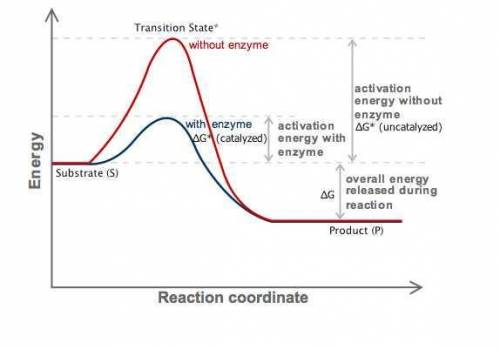
Biology, 28.02.2020 19:56 starlightmoon213
During a laboratory experiment, you discover that an enzyme-catalyzed reaction has a G of -20 kcal/mol. If you double the amount of enzyme in the reaction, what will be the G for the new reaction?

Answers: 3


Another question on Biology

Biology, 22.06.2019 00:50
When is your respiration rate likely to change? a. when your intestines are digesting b. when your cells have too much glucose c. when your cells need more oxygen d. when your liver is working after a meal
Answers: 2

Biology, 22.06.2019 02:50
Lactic acid and energy are produced in muscle cells during choose 1 aerobic respiration cellular respiration anaerobic respiration cellular division
Answers: 3

Biology, 22.06.2019 03:00
Which of the following are the ingredients that go into the plant and are needed for photosynthesis? select all that apply. 1.) soil 2.) seeds 3.) carbon dioxide 4.) minerals 5.) glucose (sugar) 6.) water 7.) light energy (sunlight) 8.) oxygen 9.) air
Answers: 2

Biology, 22.06.2019 05:40
This group of organisms perform the process of ammonifcation. a. herbivores b. decomposers c. carnivores c. plants
Answers: 1
You know the right answer?
During a laboratory experiment, you discover that an enzyme-catalyzed reaction has a G of -20 kcal/m...
Questions

Mathematics, 10.07.2019 03:00


Mathematics, 10.07.2019 03:00


Mathematics, 10.07.2019 03:00

English, 10.07.2019 03:00

Mathematics, 10.07.2019 03:00


Mathematics, 10.07.2019 03:00

English, 10.07.2019 03:00

Mathematics, 10.07.2019 03:00

Geography, 10.07.2019 03:00


Mathematics, 10.07.2019 03:00


Social Studies, 10.07.2019 03:00

History, 10.07.2019 03:00

World Languages, 10.07.2019 03:00


Social Studies, 10.07.2019 03:00




